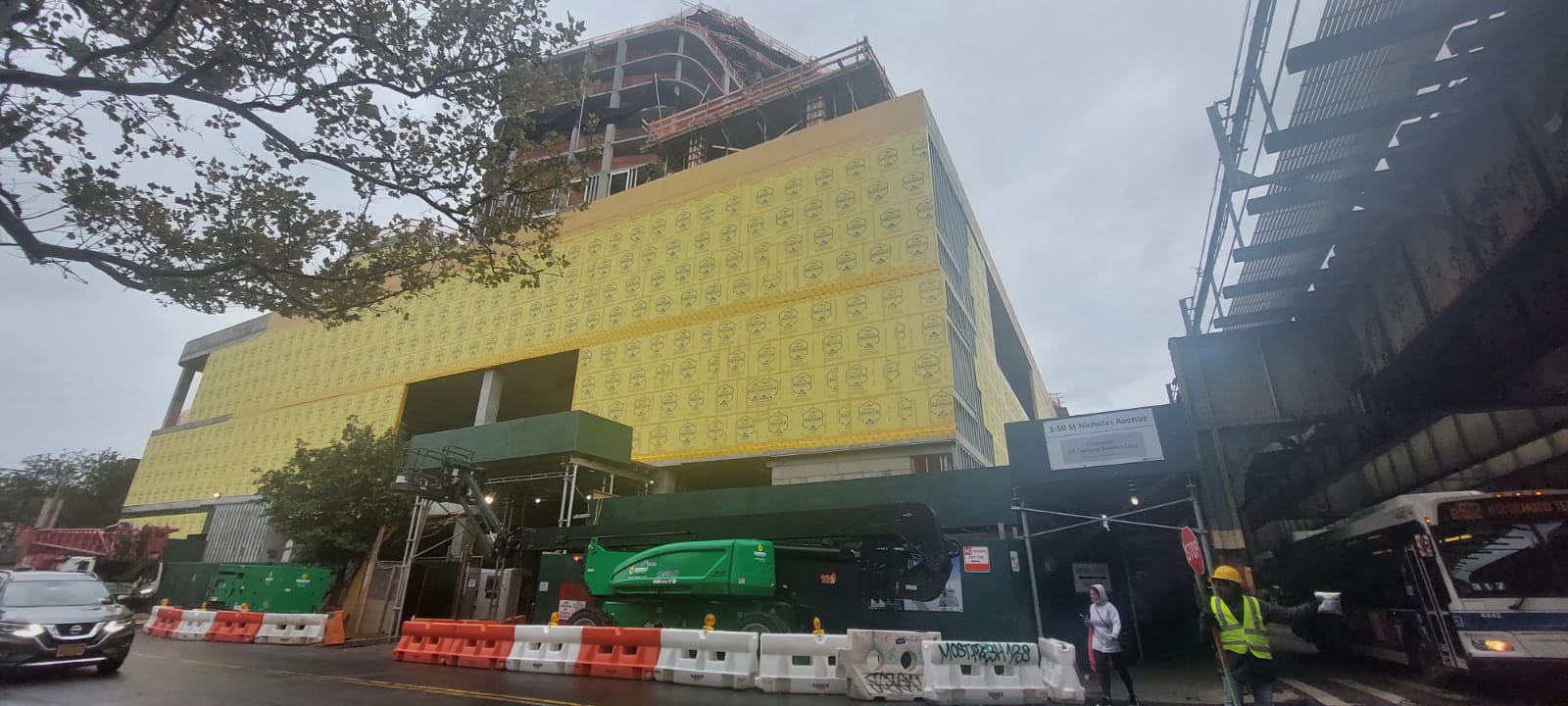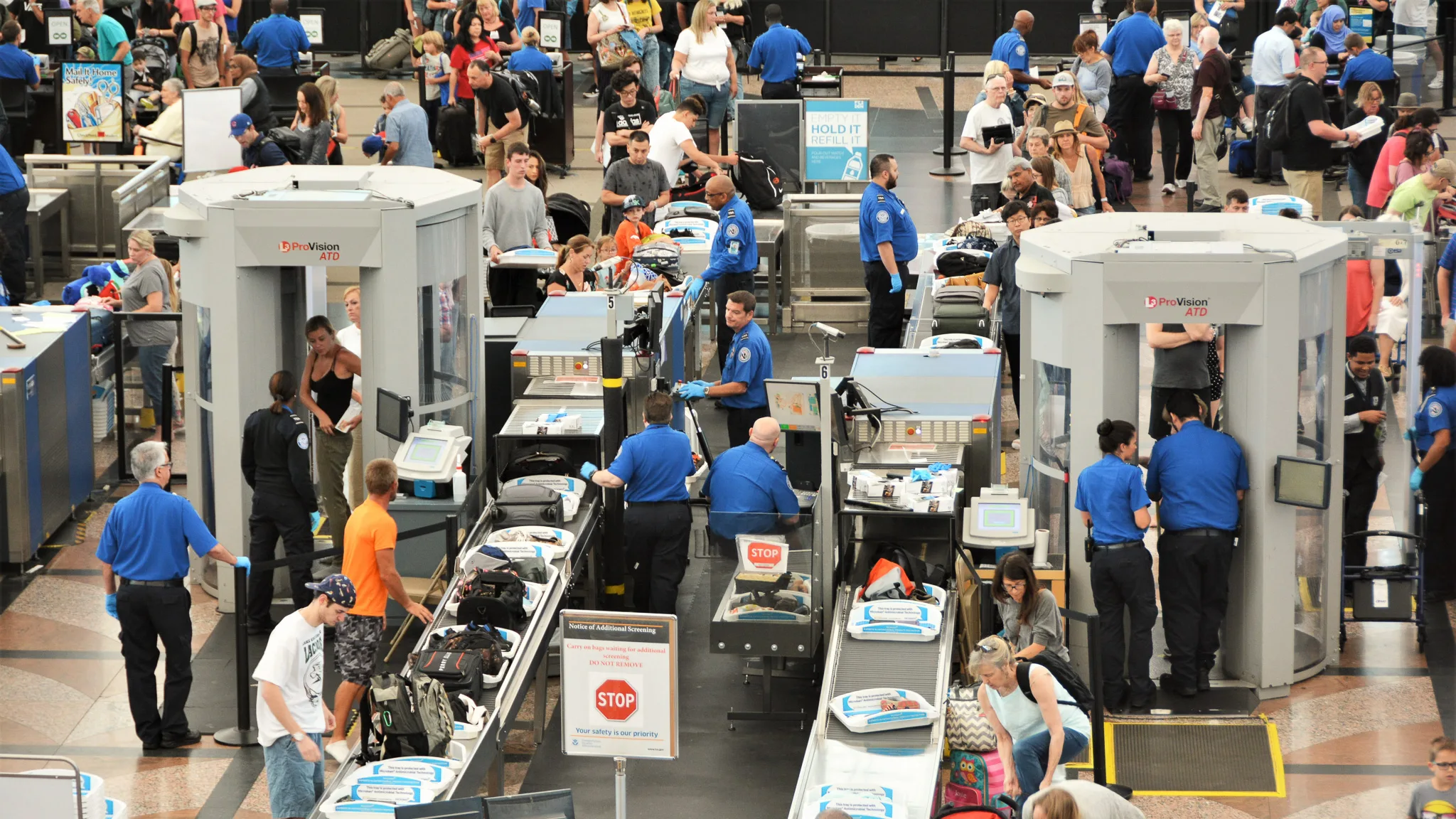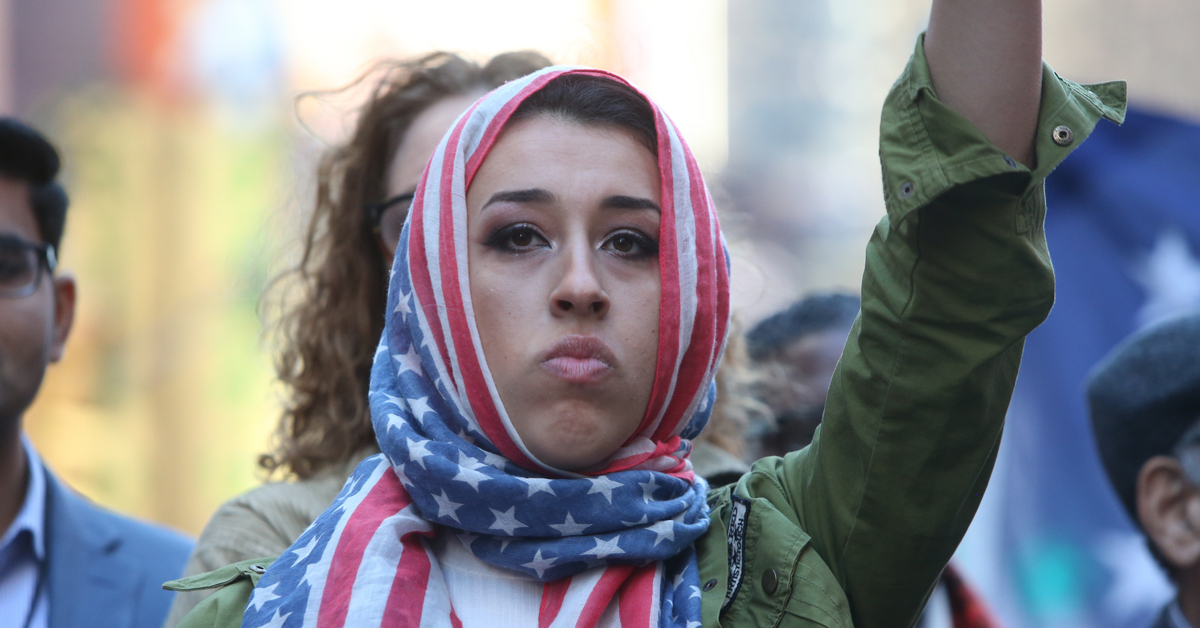On April 6, Holger Molina, a 46-year-old immigrant from Ecuador, was removing plywood as part of his job in the construction of a 17 story tower. It is slated to become the tallest building in the area bordering Ridgewood, Queens and Bushwick, Brooklyn. It was raining when, at 3 p.m., Molina slipped and fell from the first-floor stairwell approximately 20 feet through a hole into the basement. He was rushed to Wyckoff Hospital and the next day was declared dead from the injuries sustained in his fall, according to the safety incident report filed by his employer.
After the accident, a Department of Buildings inspector visited the construction site and “observed no safety measures to safeguard workers,” according to the violation report, which considered the incident an aggravated offense level two, the most serious violation from the agency. The judge of the Office of Administrative Trials and Hearings in New York upheld the violation and slapped the contractor, AB Capstone Builders Corp, with the maximum penalty — a $25,000 fine. For that single incident, the Department of Buildings would issue additional violations for penalties worth $55,000 in total.
The penalties were imposed after the project, slated to be called Myrtle Point — a mixed-use complex with four floors of commercial space and 133 residential units, of which 30 percent would be an “affordable component” — had been fully suspended on three instances since 2021. As of today, the Department of Buildings has issued five full-stop work orders after considering that the work on any of the 90,000-square-foot property was unsafe for workers.
That’s an inordinate number of stop-work orders for a construction project. For example, the 47-story office tower at 425 Park Avenue scheduled to be completed next year — a complex renovation project that added 75% new construction to the old building’s structure, costing more than $900 million — has over 90 safety violations, according to Department of Buildings records. However, this agency has never issued a stop-work order for that renovation project, which started in 2016.
Also Read: Wage Theft Scheme Tied to Brooklyn Address Where 2,000 LLCs are Registered
This year, at least four accidents on that project have resulted in injured workers, apart from the fatal fall that caused Molina’s death. None of those workers were unionized.
The project, which has received more than $143 million in funding from the private equity firm Madison Realty Capital, has moved forward after the Department of Buildings (DOB) lifted the stop work orders, despite the opposition of tenants and New York state senator Jessica Ramos. “If the DOB is listening: stop AB Capstone, stop this project. Stop any project where workers are getting hurt. Take our safety seriously,” said Ramos during a vigil for Molina in front of the construction site, at 3-50 St. Nicholas Avenue, on April 13.
“The tragic fatal worker fall that took place earlier this year at 3-50 St. Nicholas Avenue is still under investigation by DOB and our partners in law enforcement”, Ryan Degan, deputy press secretary of the NYC Department of Buildings, wrote in an email to Documented.
If charges are pressed, it would be the first criminal prosecution led by the Queens District Attorney’s Office of a company or professional for the death of a worker on a construction site in the borough. The DA’s office did not respond to a request for comment. However, Diane Struzzi, communications director of the NYC Department of Investigations —the law enforcement agency that would jointly bring charges against whoever is responsible for Molina’s death — stated in an email that the agency “is aware of the matter” and declined to comment further.
Construction injuries are typically considered work-related accidents where no criminal intent is found. Only financial penalties are usually imposed on the contractors responsible for the fatalities. There has just been one successful criminal prosecution in Manhattan after the death of a construction worker and a handful of criminal prosecutions in Brooklyn related to construction sites’ deaths.
Also Read: Developers Want to Make One Of NYC’s Most Dangerous Jobs Even Riskier
Advocates have long complained that the lack of criminal prosecutions in construction accidents in the city does not incentivize contractors to ensure safety procedures on their sites. Advocates have also noted that large contractors often absorb civil penalties as a business expense that does not really affect their bottom line.
The private equity firm Madison Realty Capital, the funder of Myrtle Point, boasts about having closed on approximately $13 billion of transactions in the multifamily, retail, office, industrial and hotel sectors. The project is developed by Arch Companies, with a real estate portfolio of over $1 billion, and AB Capstone, with more than a dozen real estate projects in the City.
Both AB Capstone and, to a lesser extent, Arch Builders — an Arch Companies’ subsidiary — are listed alternatively as the general contractors for the project, according to Department of Buildings’ records. From January 2021 to August 2022, the project has accumulated 47 violations — over two violations per month on average — which have amounted to more than $250,000 in fines upheld by the Office of Administrative Trials and Hearings. More than $205,000 of those fines are still pending and could be contested.
These fines are independent of what potentially could be filed against the companies by the Queens District Attorney’s Office if the case is criminally prosecuted, or by the federal agency Occupational Safety and Health Administration (OSHA), which has two investigations open on the project, one related to Molina’s death and the other one, dated in July, about unspecified health issues. The agency declined to comment on these investigations as they are still ongoing.
For the violations related to Molina’s death, a hearing scheduled for September 20 at the Office of Administrative Trials and Hearings was adjourned to February 2023. AB Capstone did not respond to a request for comment from Documented.
Reoccuring safety violations
Less than three weeks before the fatal accident of Molina, on March 23, the Department of Buildings had ordered the construction to be stopped completely because of a “failure to institute/maintain safety measures for fall prevention,” as there were no guardrails in place. “The General Contractor will be required to provide and maintain safety measures for the operation moving forward,” concluded the inspector.
Days later, after inspecting the construction site, the DOB inspector found that the contractor had fixed previously noted violating conditions and partially lifted the stop work order, which allowed the work to resume on the lower floors. On April 6, the contractor found that all the conditions had been met and lifted the stop work order entirely. Hours later, Molina would fall to his death. A new full-stop work order was issued and, a month later, partially lifted.
Since the project’s inception in 2015, the Ridgewood Tenants Union, which fights displacement in their community, has denounced its construction. In 2020, tenants staged a demonstration at 5:30 a.m. in front of the residence of Meir Babaev, president of AB Capstone, to express their alarm about the rent increases the complex will cause, which would primarily affect neighbors of color, they said.
“We have done some research on AB Capstone, and of course just like most developers, they are acting in bad faith and don’t care about our neighborhood or the workers they place at risk of dying,” Raquel Namuche Pacheco, member of the Ridgewood Tenants Union, wrote in an email to Documented. The union organized Molina’s vigil, where Namuche Pacheco, immigrants’ rights advocates, and senator Ramos called the Department of Buildings to shut down the construction.
One month later, on May 18, another partial stop work order was issued by the Department of Buildings specifically for work in the street area. Just one day later, that order was flouted. A worker fell approximately five feet from the back of a truck to the ground level, suffering a laceration to the head. As a result, three violations and another full-stop work order were issued. On June 1, the stop work order was lifted.
Weeks later, on August 16, another worker was injured when a eight feet long laminated beam fell from the ceiling, triggering another aggravated offense level two and a $12,500 fine. As of September 15, the project was moving forward under a partial stop work order.
“When confronted with a construction professional who routinely flouts construction safety regulations, DOB has a number of enforcement tools at our disposal,” wrote Degan from the Department of Buildings. “The Department can place stop work orders on jobs, assess civil penalties, mandate the contractor hire additional site safety personnel, suspend and revoke licenses when applicable, and where necessary, work with our partners in law enforcement to pursue criminal prosecutions.”
According to Degan, Department of Buildings’ initiatives have contributed to reducing construction-related injuries, which have declined 33% from 2018 to 2021. As of August, construction-related fatalities in 2022 were down from seven to four compared to the same month of 2021, according to the city’s own tally.
For families of deceased workers, however, these efforts fall short, as long as contractors with a history of accidents are allowed to keep operating.
“No more injustice, no more companies like AB Capstone that put workers’ lives at risk because they don’t have safety protections in place. No more,” a woman read during Molina’s vigil on April 13. It was a statement delivered on behalf of Molina’s family —a widow and three orphaned children.
Also Read: $38M NYCHA Renovation Led By Contractor Known For Dangerous Job Sites, Wage Theft















